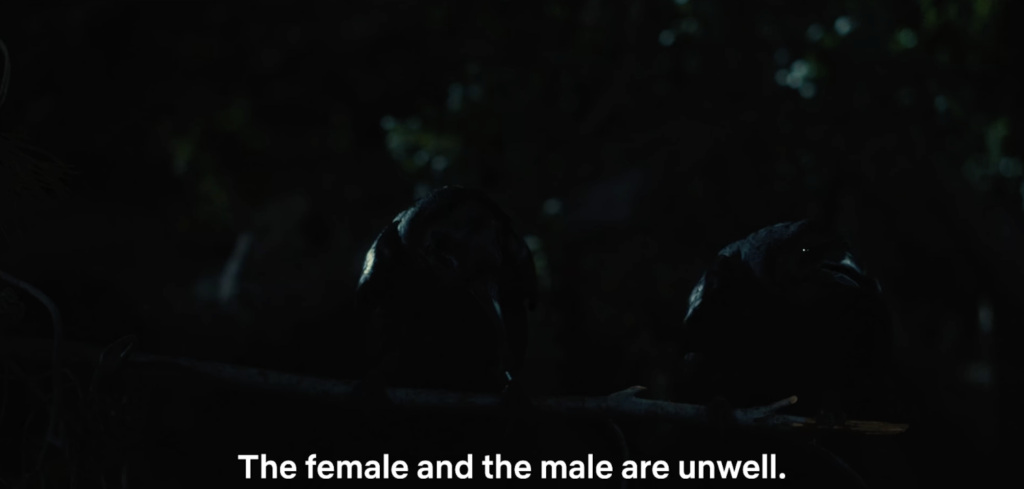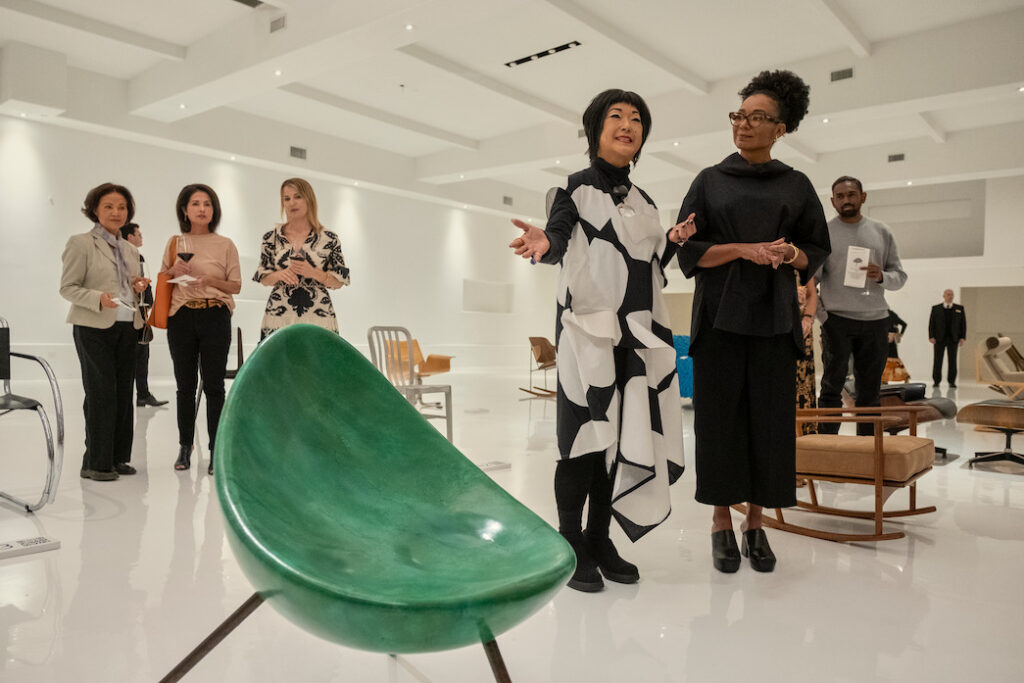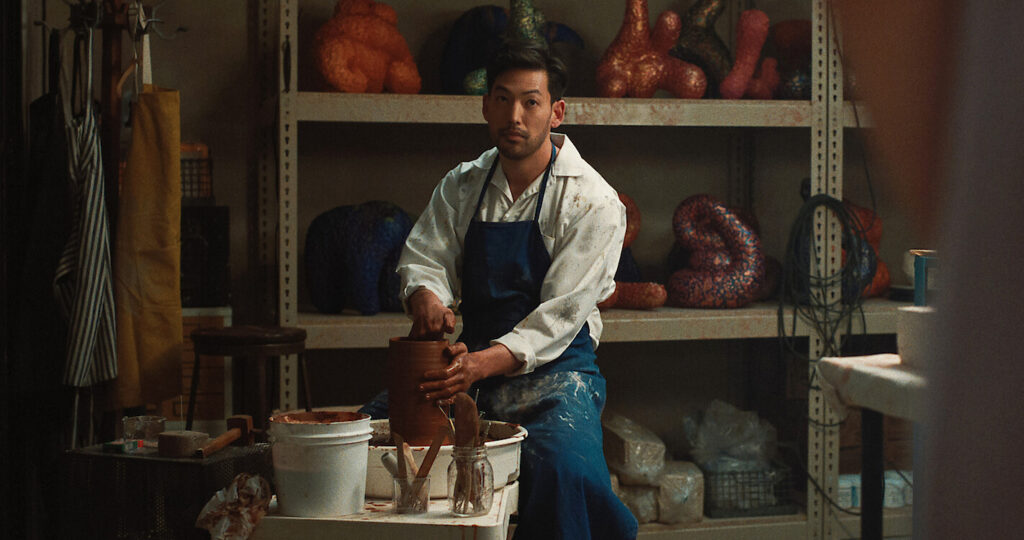I’m sure you picked up on the symbolism of the crows in the series Beef, but did you notice all the other recurring motifs symbolizing and foreshadowing critical aspects of the narrative and the character’s fates?
Pss… spoilers ahead !
Let’s start with the obvious one – Crows !
In some cultures, crows are often associated with ill fortune and are believed to bring bad luck.
So, in the first episode when Danny Cho (played by Steven Yeun) says “Crows love me” while climbing a tree (hint: foreshadowing his fate), what he means is the black birds don’t bring him bad luck.
Or when Amy Lau (Ali Wong) initiates a flirtatious conversation with Paul (played by Young Mazino) at the terrace of Jordan Forster’s (played by Maria Bello) home, we see her get startled by a crow – symbolizing the looming disaster that’s upon her.
There are several subtle sequences in the series where we see crows either flying in the background or being mentioned in conversations, which have prophetic or ominous connotations. But that also means that they were following Danny and Amy’s feud just like us!

Fast forward to the last episode, when the two crows are “spilling the tea” with one another about these emotionally damaged humans Danny and Amy, we see a turning point. Another symbolic representation of how the bird is associated with transformation.
In some Korean myths and legends, crows are depicted as shapeshifters or magical creatures capable of transforming into humans. But here, Amy and Danny transformed into each other. Sure, the “magical” berries could’ve been responsible for that too, but I’d like the crow theory better.
The Tamago Chair
We’re introduced to the world of artsy chairs at an exhibition hosted by Fumi Nakai (played by Patti Yasutake), who’s the widow of a renowned architect and artist. She’s also George’s mum and Amy’s very judgemental mother-in-law !
Why are chairs a significant element in Beef?
In various Eastern cultures, chairs are often associated with status, power, authority, and hierarchy. For example, the head of the family would traditionally sit on the most important or highest chair at family gatherings or for meals. Emperors, officials, or other high-ranking figures would sit on elaborately decorated chairs as a symbol of their status and prestige.
So, what does that tell us about Fumi and her perspective on her family’s reputation?

The woman who has not worked a day in her life is holding onto these pieces of furniture to show (not sell) her rank in society. And the same mindset is instilled in future generations, i.e. George Nakai (played by Joseph Lee), who values The Tamago higher than any business transaction, because that chair is a status symbol. Also, a memory of his late father’s work.
Speaking of which, let’s talk about George’s art – the vases.
The Vases
I’m not talking about the aesthetics of the sculptures, but the ornament or the container itself.
The husband is the homemaker in Beef – holding the fort, keeping the family together and containing all of theirs and his own emotions… symbolically, in a vase.
And that is exactly why Amy subconsciously detests those goopy, lumpy vases, because George is more zen and has the ability to control his emotions, while she doesn’t.
Which also perhaps why she feels like a fraud, because anyone who works with plants is a nurturer and tends to be kind, calm, empathetic and rooted. All of which, we know, Amy is not.

This leads me to another motif …
Water Leak
I might be over analyzing this but hear me out.
There are two distinct sequences in the series where there’s a mention of plumbing issues and remodelling that require immediate attention.
Danny walks into Amy’s home twice suggesting a potential water leak, and the respective reactions from Amy and George is where the symbolism lies.
Amy is frustrated and overwhelmed to have to deal with another issue, while George’s reaction is more restrained. Amy sees water-leaks as loss of control or as an inability to manage a situation. It’s almost like an emotional leakage indication the need to release or express pent-up emotions.
George, on the other hand takes it upon himself to fix the leakage; once again, he’s able to contain the information as well as his emotions and deal with it.
The Handyman
Since Amy’s profession gave an insight into her insecurities and personality, Danny’s job as a handyman and his work ethic is an insight worth highlighting.
He could’ve had any profession but he’s a handyman who symbolize practicality, resourcefulness, efficiency, and adaptability.
While we see the enraged side of Danny, he’s comparatively calmer and more collected in his approach to solving problems. What Amy lacks in emotional stability and health, he lacks in material wealth. So not only are they each other’s outlet for their respective shortcomings, but they even balance each other out.
Popcorn Rating – 



 [5/5]
[5/5]
Beef is one of the most deliciously cooked and presented series I’ve watched in a while.
I’m sure there’s a whole lot more that I’ve missed.
Did you notice any other themes and symbolism in the series?